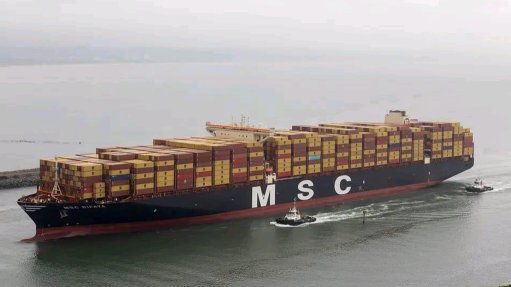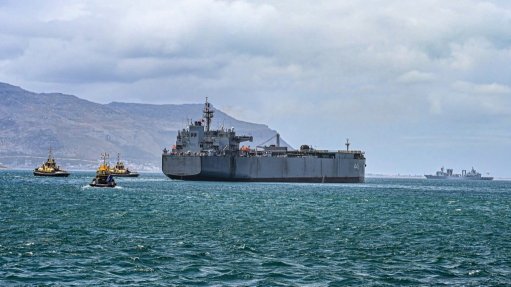Goodbye to copper
Copper, the metal, has been around for a very long time. The Copper Age predates the Bronze and Iron ages and ran from about 4500 BC to 3500 BC.
Copper has stuck with us – wooden ships were sheathed in copper and the domes of buildings were made from copper; it does not corrode. The Statue of Liberty is clad in copper. Copper has been used for telegraph wires, underground cables and telephone cables.
However, all that is changing. The roadsides all around the world had long distances of telephone poles with up to 64 separate circuits, each being a copper wire. Terminal boxes distributed the circuits to central exchanges, which, in turn, connected households and businesses. Copper was, until recently, everywhere. But microwave dishes have replaced all the telephone wires along the roads. A microwave dish is not very big, is very simple to erect and can carry many signals – more than a bunch of copper wires. It is also interference free and weatherproof, maintenance free and simple to operate.
The last blow to copper is the rise of fibre-optic cables. All over the world, pavements are being lifted, trenches dug and fibre-optic cables laid. Similar to microwave dishes, the fibre is very fast and can carry many signals more than copper wires. The huge advantage of both these systems is that very few people would steal a microwave dish or a length of optic fibre. Not so with copper. The urban rail system in Cape Town regularly came to a halt, owing to thieves stealing copper signal cables. Now they are free to steal all they want – the signal system is fibre and microwave.
Copper in South Africa has been very much part of a financial system which was a rip-off. The large copper producers refuse to recycle copper, since, they claim, it is impure, and they would not want to supply a copper cable which was impure, would they? I mean, the conductivity would not be to spec. In point of fact, there are available and in use (mostly in Cape Town) aluminium cables that are only about 59% the conductivity of copper. So, if a copper cable was slightly less conductive, owing to impurities, it could just be sold as cable which is a better conductor than aluminium but not as good as pure copper. Or something.
The simple fact is that most of South Africa’s scrap (generally stolen) copper is shipped off to the Far East, where they are not so fussy.
Another thing is that the price of copper in South Africa is based on the price of copper at the LME. Who knows why? But we can all see that the worldwide demand for copper as communication cable is going to shrink. This may not affect the world demand for copper. I have read a report which stated that copper demand will grow as a result of Donald Trump’s infrastructure redevelopment plans and growing demand from electric vehicle producers. I am not sure about this – power lines use steel wires which are wrapped with aluminium (copper is too heavy) and I really, really cannot see that electric cars will have any impact. I mean, yes, they do run on electric motors, but this will not cause a sudden leap in electric motor demand of any significance.
There is one possibility which has a (very slight) chance of happening: I believe (and I am not alone) that the current in power line conductors is not carried by the electrons of the metal but rather by a ‘plasma’, which surrounds the metal conductor. Thus, in theory, one could make a power line conductor out of a flexible nylon tube around which was wrapped some open braid copper. This would be as light and strong as aluminium on a steel core and way cheaper. Perhaps fanciful, but worth trying.
Article Enquiry
Email Article
Save Article
Feedback
To advertise email advertising@creamermedia.co.za or click here
Comments
Press Office
Announcements
What's On
Subscribe to improve your user experience...
Option 1 (equivalent of R125 a month):
Receive a weekly copy of Creamer Media's Engineering News & Mining Weekly magazine
(print copy for those in South Africa and e-magazine for those outside of South Africa)
Receive daily email newsletters
Access to full search results
Access archive of magazine back copies
Access to Projects in Progress
Access to ONE Research Report of your choice in PDF format
Option 2 (equivalent of R375 a month):
All benefits from Option 1
PLUS
Access to Creamer Media's Research Channel Africa for ALL Research Reports, in PDF format, on various industrial and mining sectors
including Electricity; Water; Energy Transition; Hydrogen; Roads, Rail and Ports; Coal; Gold; Platinum; Battery Metals; etc.
Already a subscriber?
Forgotten your password?
Receive weekly copy of Creamer Media's Engineering News & Mining Weekly magazine (print copy for those in South Africa and e-magazine for those outside of South Africa)
➕
Recieve daily email newsletters
➕
Access to full search results
➕
Access archive of magazine back copies
➕
Access to Projects in Progress
➕
Access to ONE Research Report of your choice in PDF format
RESEARCH CHANNEL AFRICA
R4500 (equivalent of R375 a month)
SUBSCRIBEAll benefits from Option 1
➕
Access to Creamer Media's Research Channel Africa for ALL Research Reports on various industrial and mining sectors, in PDF format, including on:
Electricity
➕
Water
➕
Energy Transition
➕
Hydrogen
➕
Roads, Rail and Ports
➕
Coal
➕
Gold
➕
Platinum
➕
Battery Metals
➕
etc.
Receive all benefits from Option 1 or Option 2 delivered to numerous people at your company
➕
Multiple User names and Passwords for simultaneous log-ins
➕
Intranet integration access to all in your organisation


















